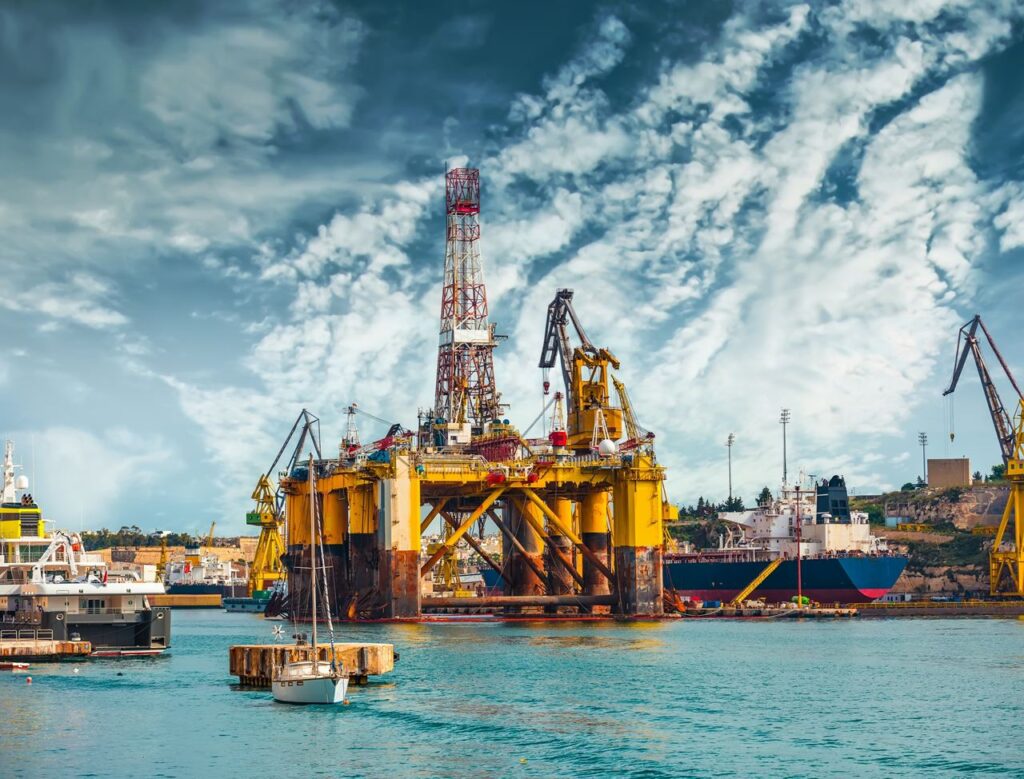This blog details the numerous protective coating benefits available to oil and gas companies.
Oil and gas operations take place in some of the harshest environments in the world. These often- treacherous conditions mean oil and gas equipment is subject to harsh and abrasive factors internally and externally and require protection in order to continue operating at its most effective level.
To address this, oil and gas companies rely on protective coating products to prevent corrosion, erosion and abrasion from destroying their piping and equipment and halting their production. Without proper coating, oil and gas equipment breaks down significantly faster than if it had been coated, resulting in lost revenue, project shutdowns and potential breakdowns that could severely damage the environment and your reputation as a company.
Protective coatings have improved greatly over the last 60 years thanks to enhanced scientific understanding and rigorous testing in the field. Today, the most cost-efficient and effective
coatings refined for the oil and gas industry include electroless nickel coating, thermally defused coating, Teflon and fusion-bonded epoxy,
We can’t understate it: High-quality, long-lasting equipment is essential for the oil and gas industry, especially in the underwater drilling sector. Protecting coatings are the best solution for companies looking to extend the life of their equipment and keep their projects running on budget and on time.
The Top Protective Coating Benefits
Corrosion Protection
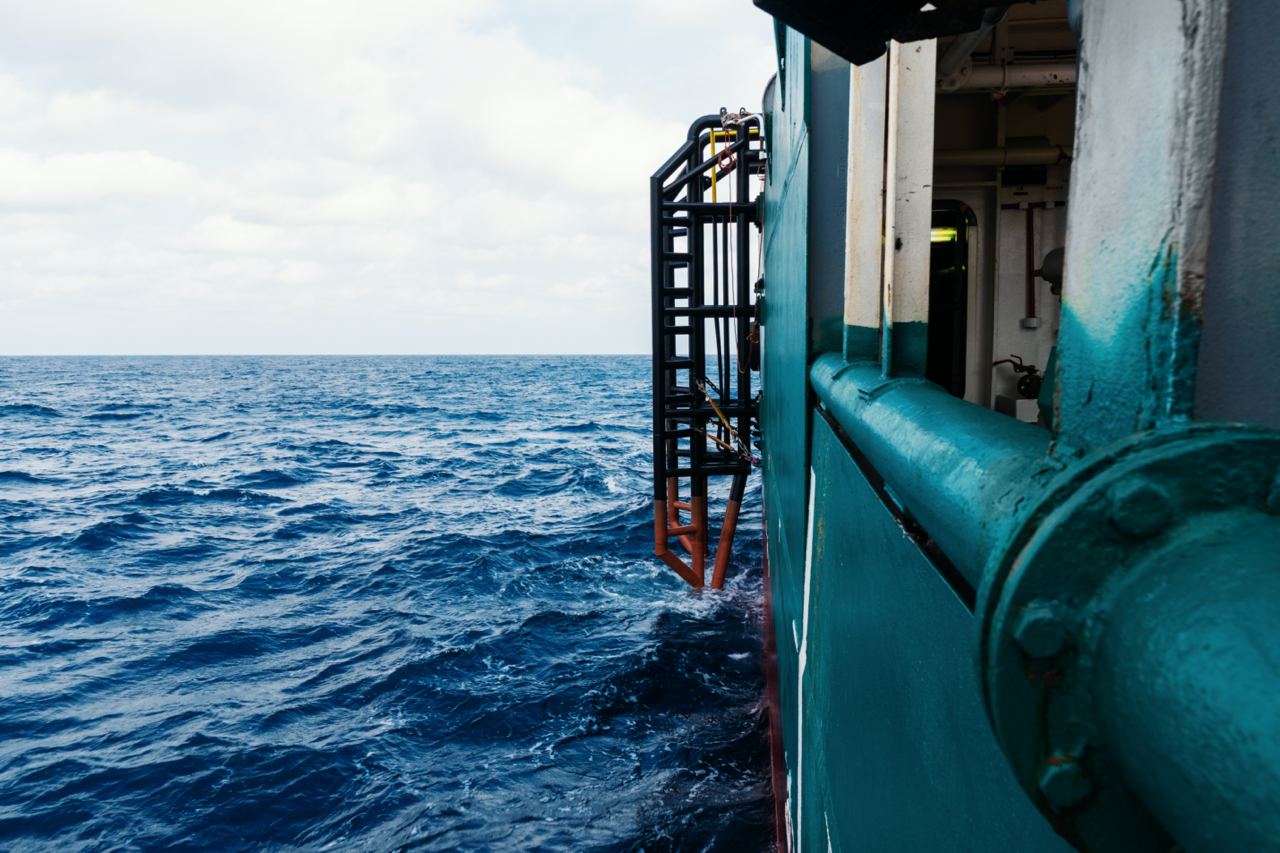
In the oil and gas industry, equipment is often exposed to extreme moisture and harsh conditions, whether underground or underwater. This exposure makes metal components susceptible to rust and pipeline corrosion, two of the leading causes of equipment failures and production delays. Such issues result in billions of dollars of lost revenue annually.

One of the first protective coating benefits is that it acts as a crucial barrier, preventing the elements required for corrosion from interacting. They serve as the first line of defence against the aggressive environments encountered in these operations.
Teflon coatings, in particular, provide a strong, non-reactive barrier that repels water and corrosive substances. This significantly reduces the chances of chemical reactions that cause corrosion, thereby extending the equipment’s lifespan and reliability.
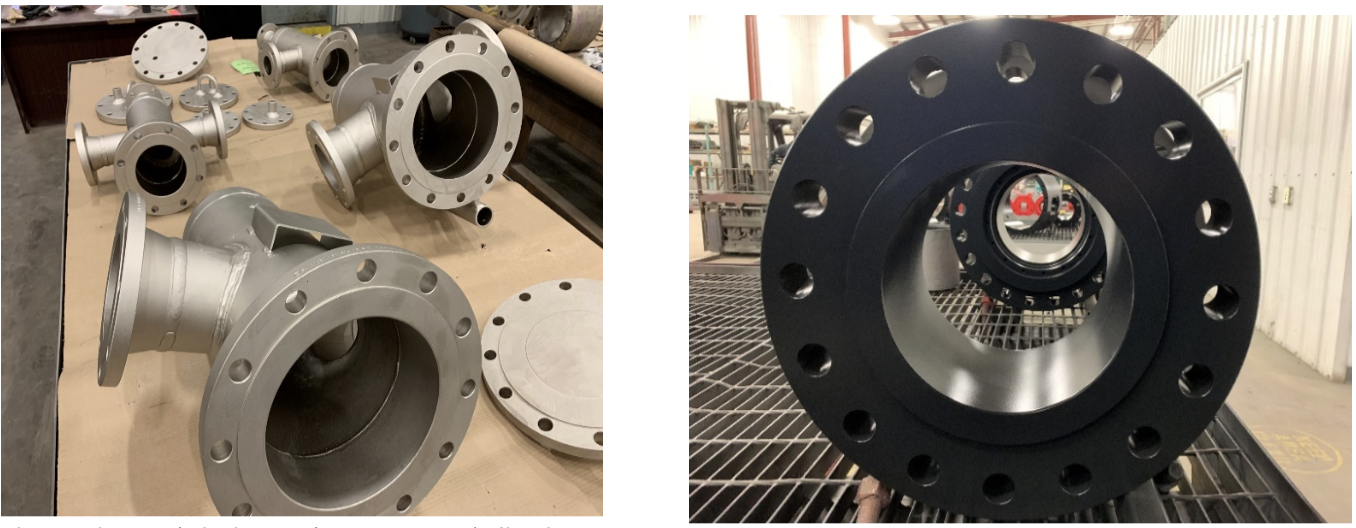
Electroless nickel coatings, especially those with high phosphorus content, are another powerful option for corrosion protection. Their dense, amorphous structure offers outstanding resistance to a variety of corrosive agents, including hydrogen sulphide (H2S), carbon dioxide (CO2), and chlorides. This comprehensive protection helps prevent chemical corrosion and greatly enhances the durability and service life of the equipment.
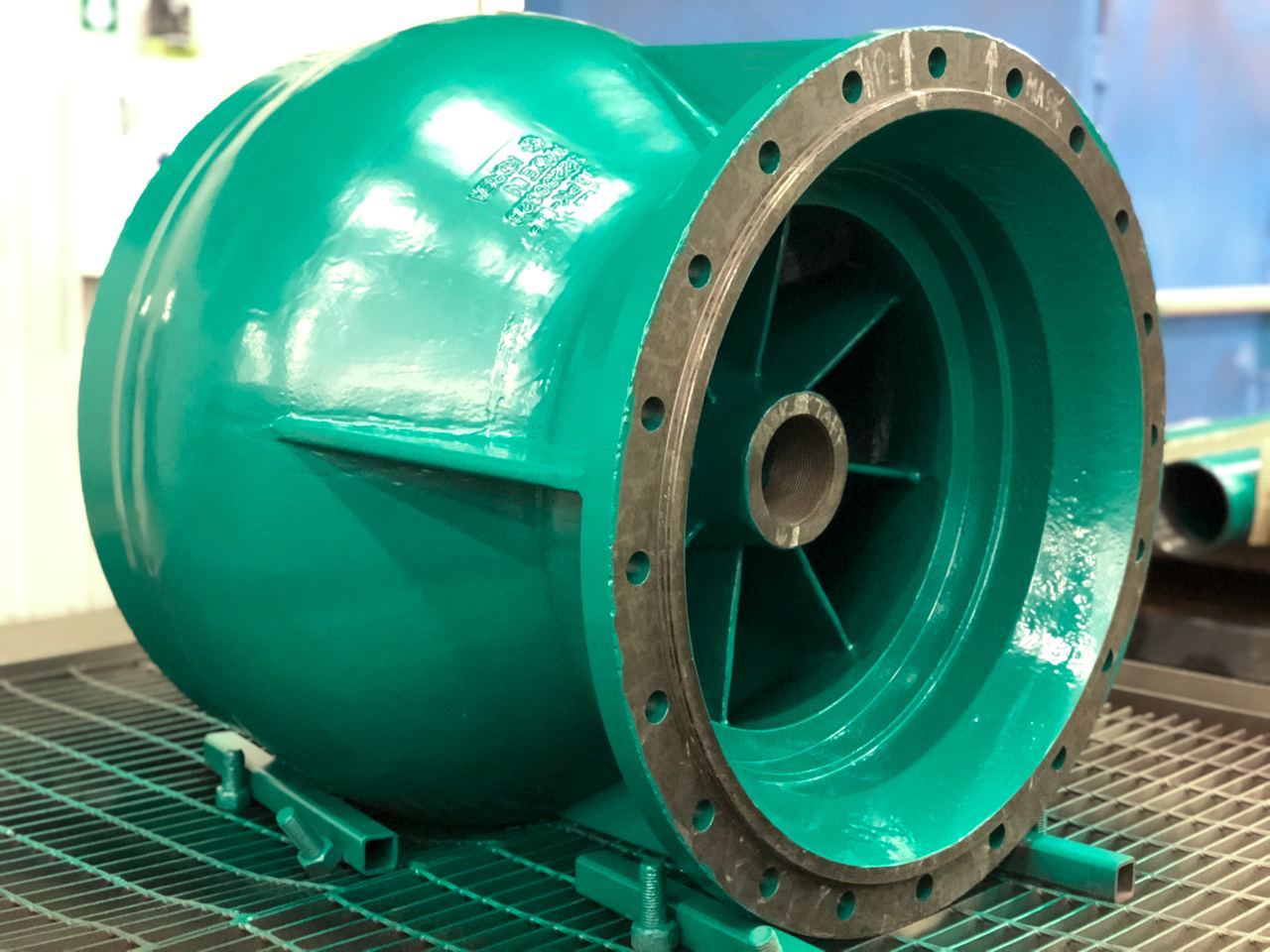
Epoxy coatings are also widely employed in this industry due to their excellent adhesion properties, chemical resistance, and durability. They are commonly used on pipelines, storage tanks, and offshore structures to create a strong, protective barrier against moisture and other corrosive substances.
Together, these three advanced coatings provide superior protection and durability for essential equipment in corrosive environments, ensuring continued operation and reduced maintenance costs.
Also Read: Protective Coatings For Oilfield Equipment: Wellhead, Valves & More
Erosion/Abrasion Resistance
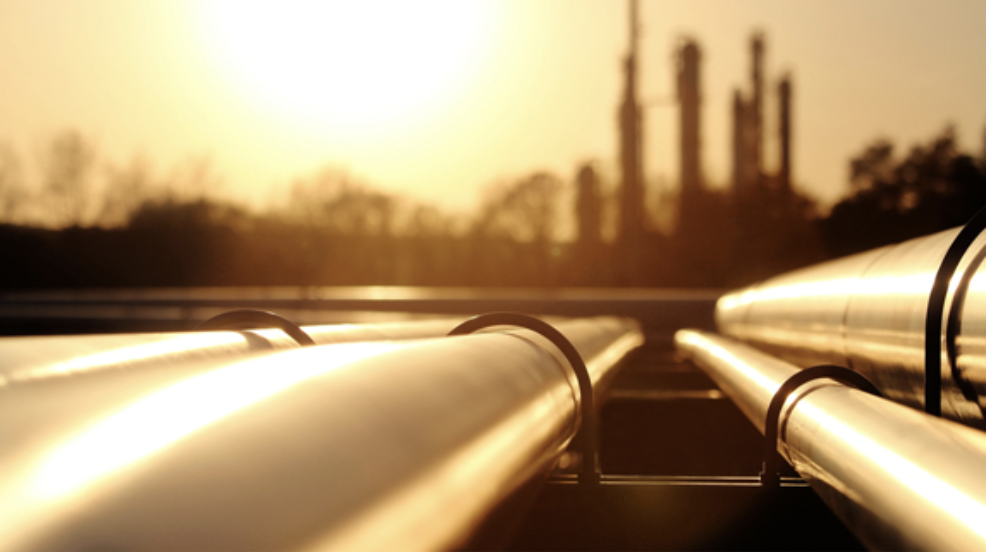
Oil and gas equipment operates at high production speeds and in some of the most demanding environments, including underwater drilling. In such settings, the equipment must withstand significant wear and tear caused by friction, which can lead to erosion and abrasion.
Protective coatings play a vital role in preserving the integrity and functionality of these components.

Electroless nickel coatings are a popular choice in the industry due to their impressive hardness of 50-52 HRC. These coatings provide exceptional wear and erosion resistance thanks to their uniform and dense structure.
This structure ensures consistent coverage across different surfaces, offering strong protection against mechanical wear and abrasive erosion. As a result, critical components remain intact and perform optimally even under harsh conditions.
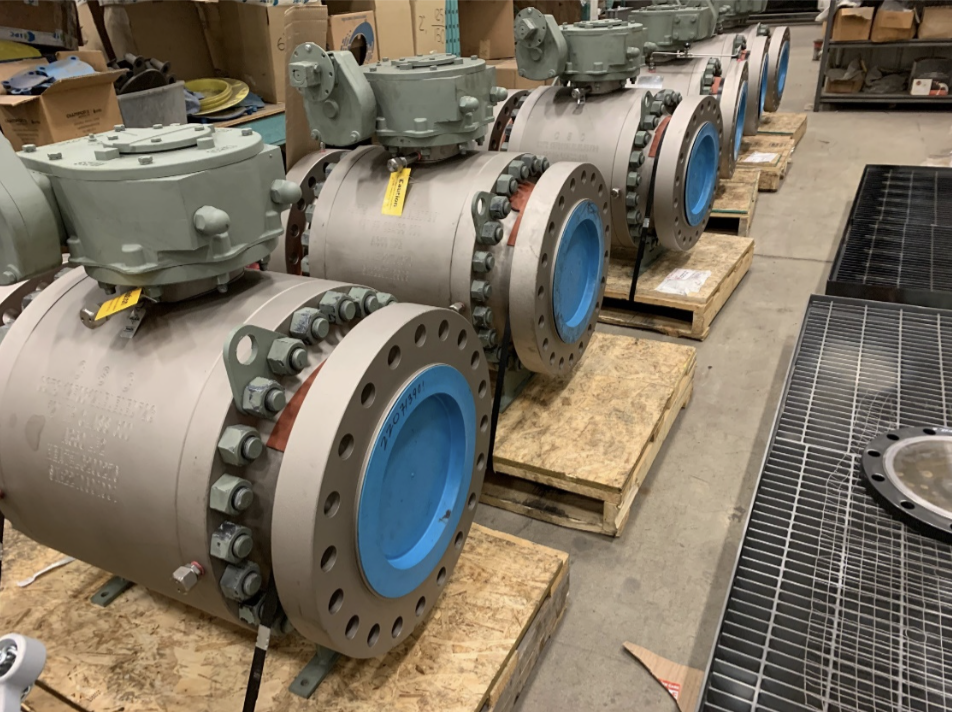
Thermally inter-diffused nickel alloy coatings offer an even higher level of protection, with a hardness rating of up to 63 HRC. The thermal diffusion process used to create these coatings produces a hard, durable surface capable of withstanding intense friction and erosion from particulate matter.
This makes them particularly effective in environments where equipment faces extreme mechanical stress, such as in oil and gas operations. The enhanced durability of these coatings contributes to a longer service life and reduced maintenance costs.
IPC erosion-resistant coatings, such as the IPC Series 9000, are renowned for their extreme hardness and toughness. These coatings are specially designed to combat erosion caused by abrasive particles and turbulent fluid flows, which are common in oil and gas environments. Their unique structure and thermal treatment make them highly durable, providing robust protection against erosion.
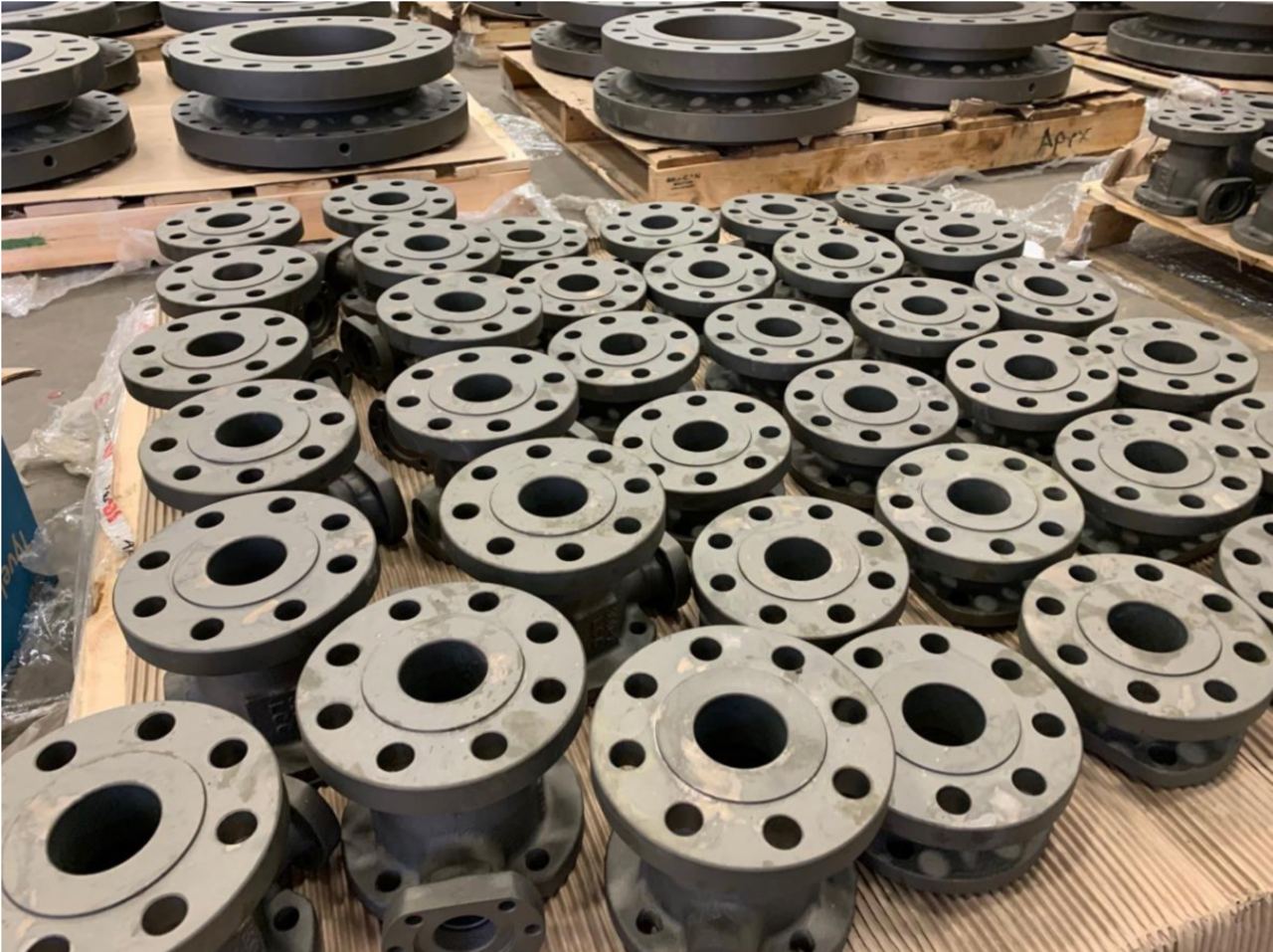
Epoxy coatings are also highly effective in providing abrasion resistance. Their strong physical properties allow them to endure exposure to coarse and fine particle abrasion. This resistance not only protects against mechanical wear but also offers significant protection against chemicals, acids, hydraulic fluids, and oils.
Without such protective measures, equipment subjected to constant abrasion would eventually deteriorate, leading to operational failures and project delays.
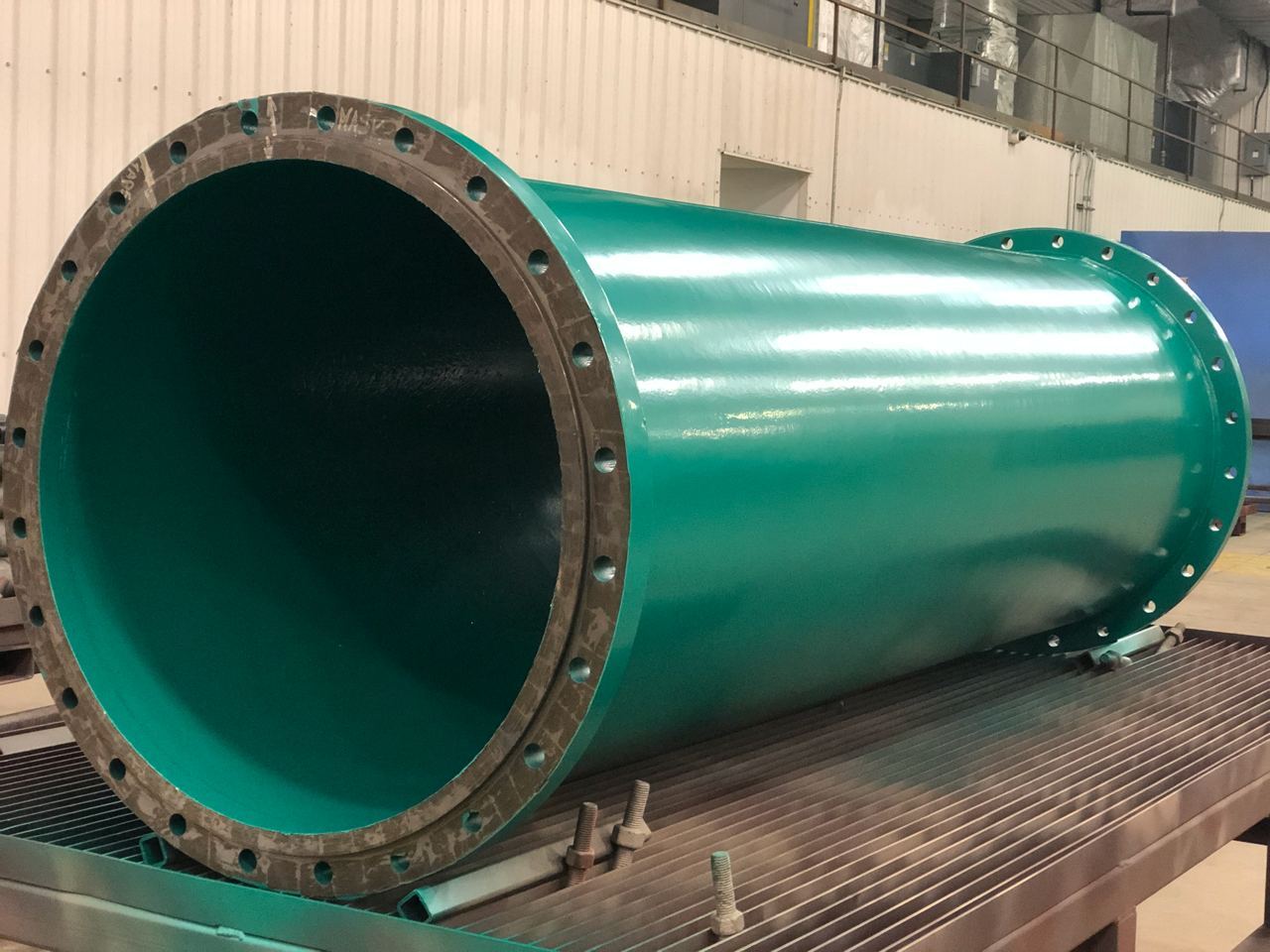
In summary, the application of electroless nickel coatings, thermally inter-diffused nickel alloys, and epoxy coatings ensures that oil and gas equipment can withstand the harsh abrasive and erosive conditions encountered during operations. These protective coating benefits are essential for maintaining the longevity and efficiency of critical components, thereby supporting the uninterrupted flow of production.
Enhanced Flow Efficiency/Nonstick Surfaces
In the oil and gas industry, ensuring smooth and efficient operations is crucial. Protective coatings play a key role in enhancing flow efficiency and preventing build-up on equipment surfaces, which can impede processes and reduce overall performance.
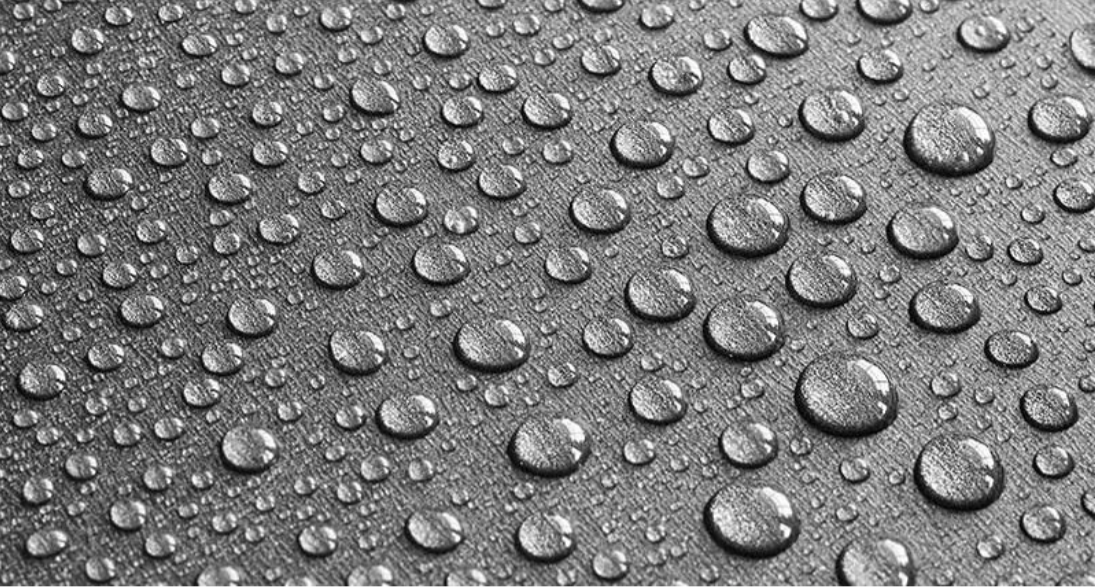
Teflon coatings are well-known for their excellent nonstick properties. These coatings create a slick surface that resists the accumulation of substances such as oils, gases, and other materials. This nonstick feature is particularly valuable in pipelines and other equipment, where it minimizes the risk of clogs and build-up, ensuring smooth flow and reducing maintenance needs.
The result is improved efficiency and consistent operation, as the equipment remains free from deposits that can cause blockages or slow down processes.
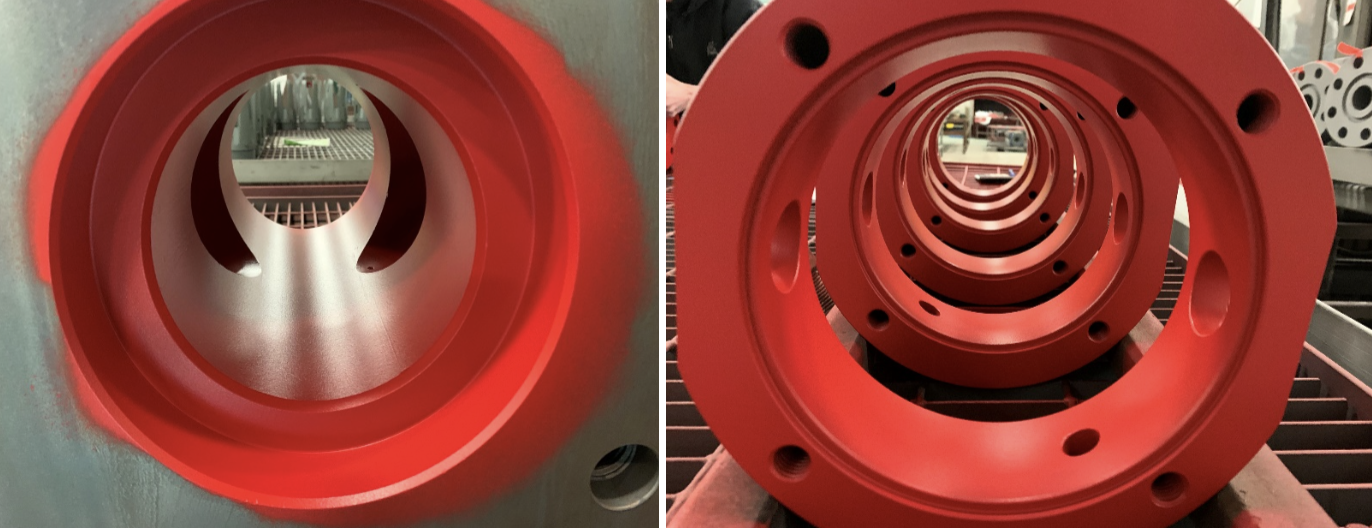
Electroless nickel coatings, known for their hardness and durability, also offer significant benefits in terms of nonstick properties. The uniform and dense coating creates a smooth surface that resists the adherence of particles and other materials. This nonstick characteristic is crucial in preventing the accumulation of substances that can obstruct the flow of fluids.
Additionally, the corrosion-resistant nature of electroless nickel coatings ensures that equipment remains free from rust and other corrosive deposits, further enhancing flow efficiency and reducing the need for frequent cleaning or maintenance.
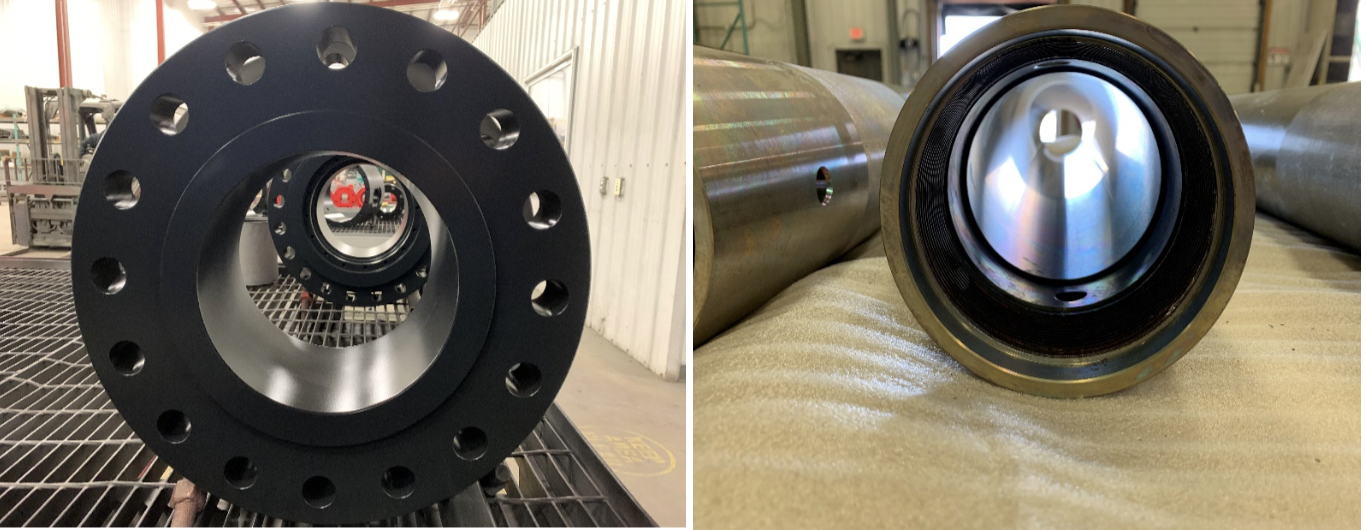
Together, these protective coatings—Teflon, epoxy, and electroless nickel—provide a comprehensive solution for maintaining clean, efficient, and nonstick surfaces in oil and gas operations. By preventing build-up and ensuring smooth flow, they contribute to the overall reliability and efficiency of equipment, helping to minimize downtime and maximize productivity
Temperature Resistance
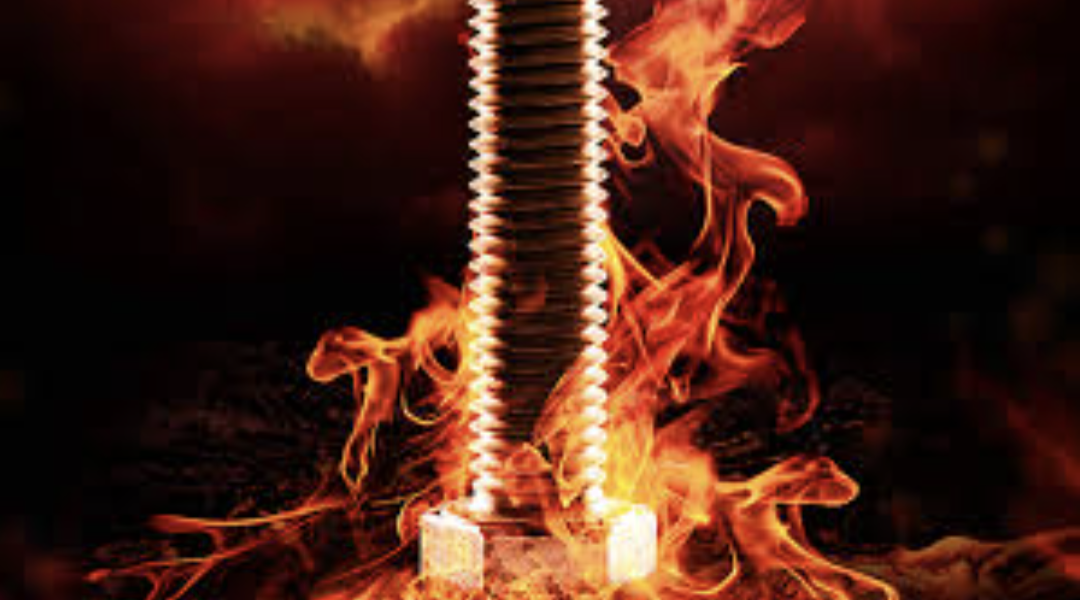
Protective coatings like Teflon and electroless nickel coatings are excellent choices for the oil and gas industry due to their exceptional temperature resistance. Teflon coatings can withstand a broad temperature range, up to 260°C, making them ideal for both high-temperature and cryogenic applications.
Similarly, electroless nickel coatings maintain their protective properties up to 200°C, ensuring reliable performance in diverse thermal environments. These coatings protect equipment from thermal degradation, enabling reliable operation under extreme temperatures and preventing breakdowns.
This ensures consistent performance and longevity of critical components in the challenging conditions of the oil and gas sector.
Chemical Resistance
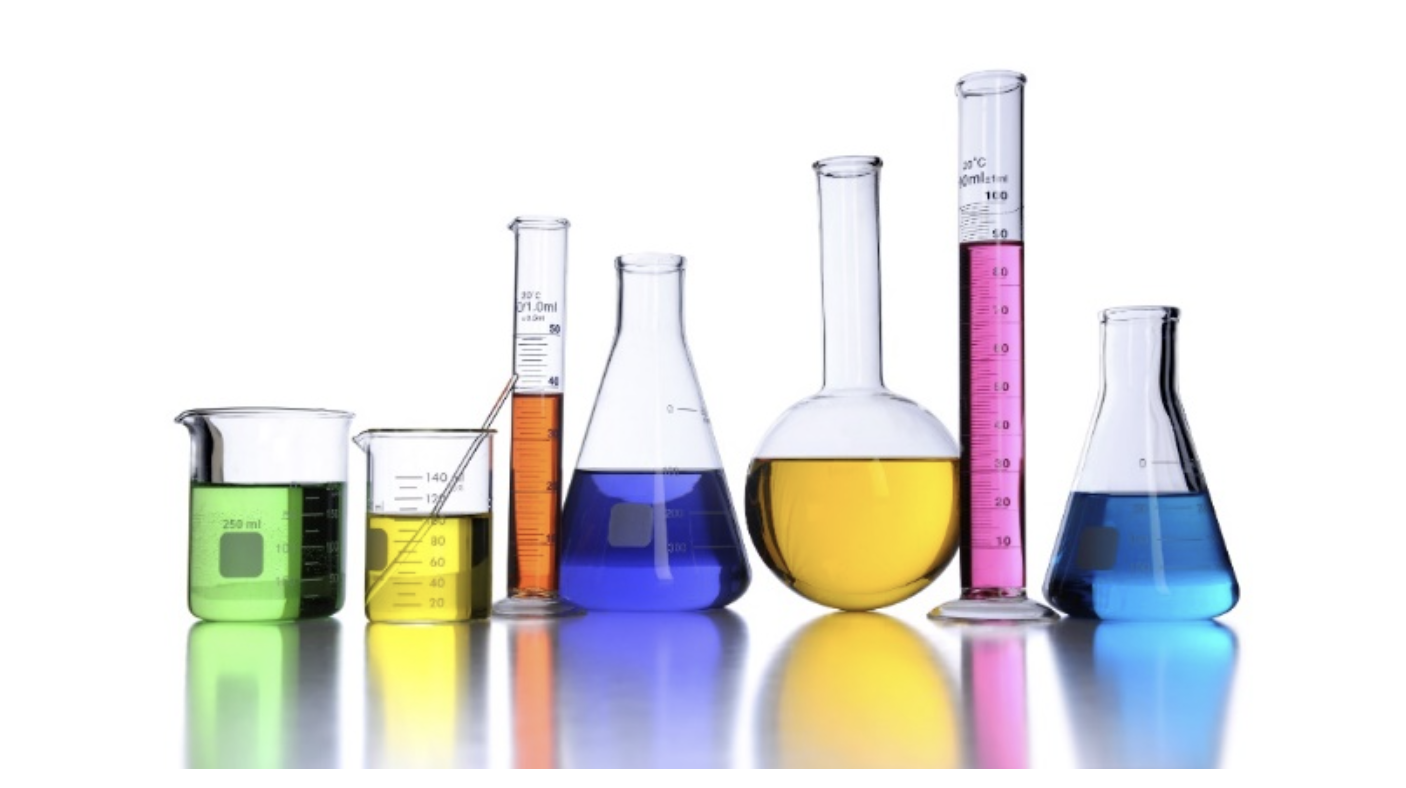
Teflon and electroless nickel coatings are indispensable in the oil and gas industry due to their outstanding chemical resistance. These coatings shield equipment and components from the corrosive effects of harsh chemicals, acids, and solvents, thereby preventing degradation and extending the lifespan of critical infrastructure such as pipelines and valves.
By mitigating chemical attack and wear, these coatings minimize maintenance requirements and reduce downtime, ensuring the safe and efficient operation of facilities. Their protective qualities also enhance the safety and durability of components exposed to high temperatures, ultimately leading to significant cost savings and improved operational performance.
Searching For Protective Coating Benefits? Shop Our Products
As you can see, there are numerous protective coating benefits: Corrosion Protection, Erosion/Abrasion Resistance, Enhanced Flow Efficiency/Nonstick surfaces, Temperature Resistance, and Chemical Resistance.
With over 45 years of experience providing customized solutions for oil and gas companies worldwide, Integrated Protective Coatings has become the leading provider of protective coatings in North America.
Our on-site engineering team works with you to learn the unique challenges of your operations and helps you determine what coatings are best suited to protect your equipment and keep your project running smoothly.
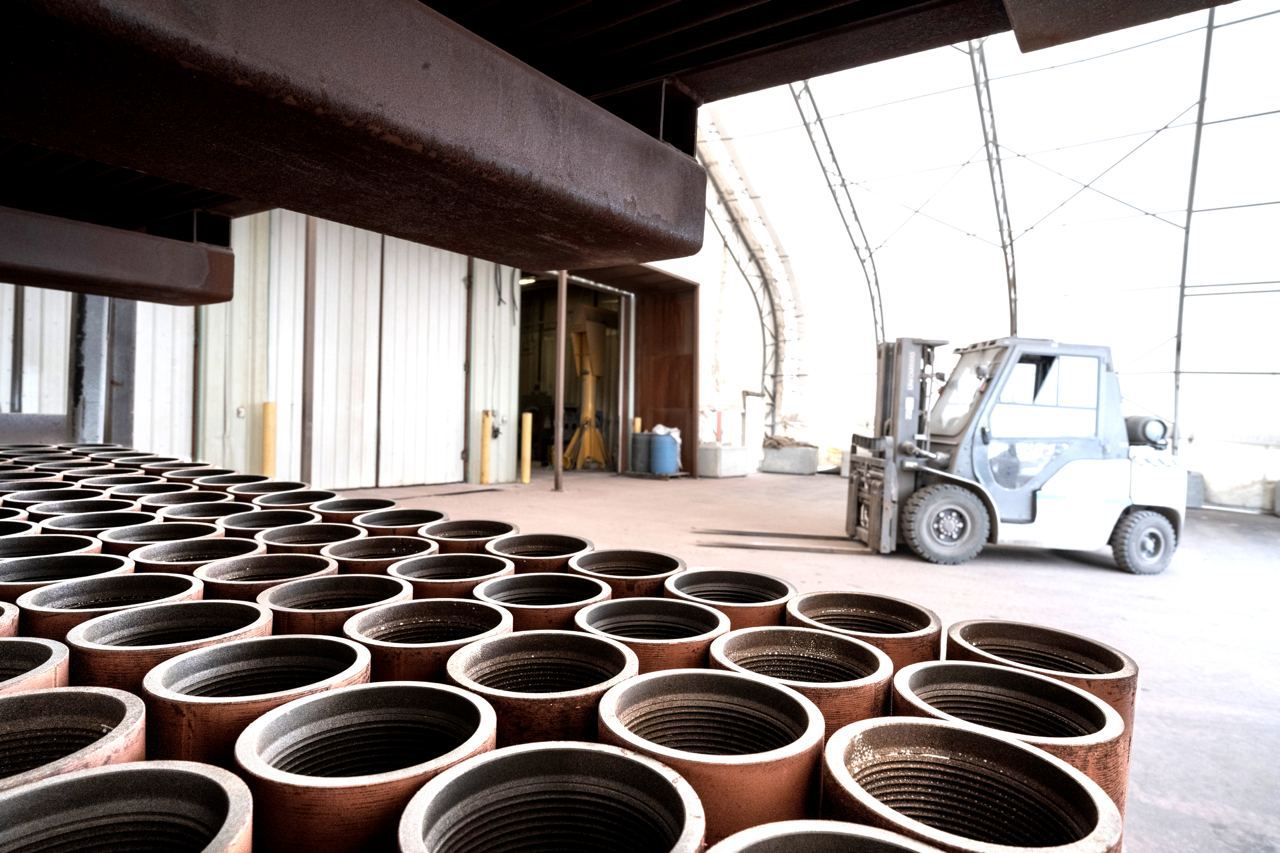
Our coating products offer cost-effective solutions to exotic alloys and have years of proven results in the field. They are also backed by our rigorous quality control process, which has set the standard industry-wide for how coatings should be applied and tested before entering the field.To learn more about IPC and how we might help your operations, click here.
